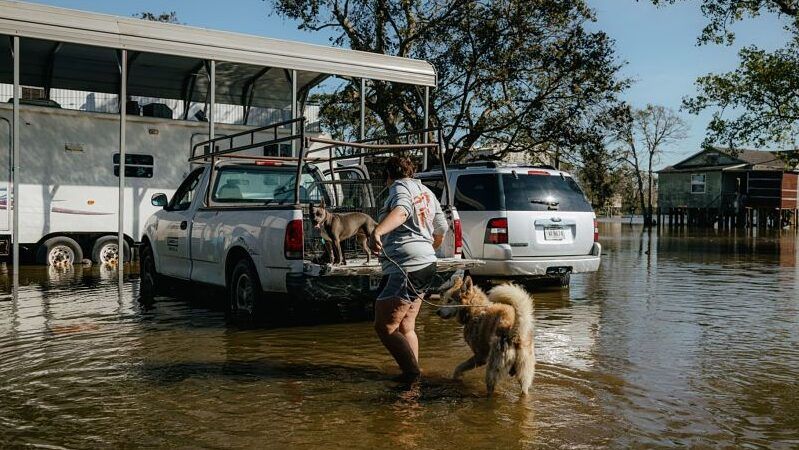President Joe Biden will sign a series of executive actions on Wednesday to combat climate change, including temporarily blocking new leases for oil drilling on federal lands and ordering other measures to overhaul U.S. energy, according to people familiar with the plan.
Biden will call on federal agencies to consider climate change in their decision-making on everything from government purchases to financial regulations, the people said. He will also direct U.S. intelligence agencies to consider global warming as they review national security threats, added the people, who asked not to be identified before the announcement.
The White House declined to comment on the plans but the president’s public schedule for Wednesday says at 1:30 p.m. he will deliver remarks and “sign executive actions on tackling climate change, creating jobs and restoring scientific integrity.”
There are also briefings scheduled by John Kerry, the special presidential envoy for climate, as well as Gina McCarthy, the national climate adviser.
“The era of putting polluters’ profits first is over,” said Josh Axelrod, senior advocate for the nature program at the Natural Resources Defense Council. “We can’t lock our children and grandchildren into decades more of the dirty fossil fuels of the past, and all the hazards and harms they bring to our public lands, oceans and coastal communities.”
Biden will also invite world leaders to a climate summit on April 22 — Earth Day — in a sign of the new president’s commitment to not just rejoin the Paris climate accord but strengthen it.
The president’s announcements come as his administration has made climate change one of its top priorities — seeking to marshal the entire federal government to combat the crisis.
The work will be buttressed by new government commissions focused on climate, job creation and environmental justice. Biden has said he will establish a climate-focused civilian conservation corps along the lines of the program created by President Franklin Delano Roosevelt during the Great Depression.
Biden is committing to conserve 30% of U.S. lands and waters by 2030 and revitalize communities that have borne the brunt of pollution. It is unclear what form those protections might take but conservation could involve designating areas as wilderness, refuges or national monuments — and walling off industrial development or even hiking and other recreational activity.
His temporary halt of the sale of new oil and gas rights on federal lands and coastal waters buys time for a review of the government’s leasing programs. About 22% of total U.S. crude supplies and 12% of U.S. natural gas came from federal lands and waters in 2019, according to the Energy Information Administration.
The leasing moratorium won’t affect ongoing operations under existing leases. And oil companies stockpiled leases and drilling permits in advance of Biden’s election, further blunting the effect.
Still, it could deliver a big economic blow to New Mexico, North Dakota and other states with substantial oil and gas reserves on federal land. The effects on the oil industry also will be uneven, with the impact falling heaviest on producers with significant federal acreage, such as Devon Energy Corp. and Cimarex Energy Co. onshore and Murphy Oil Corp. offshore.
Wyoming Governor Mark Gordon, a Republican, said the president’s moves “will divide and alienate the very working-class American communities with whom the Biden administration has pledged to unite.”
“It is clear President Biden has caved in to a loud segment of the Democratic Party that is pushing to require all policies and decisions to meet a litmus test of climate change, regardless of consequence,” Gordon said in an emailed statement. “There are bipartisan solutions available that support the people working in oil and gas on federal lands as well as reduce carbon emissions.”








